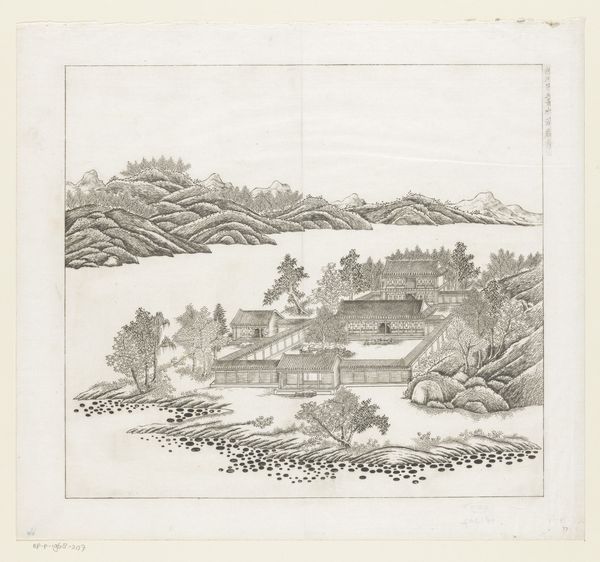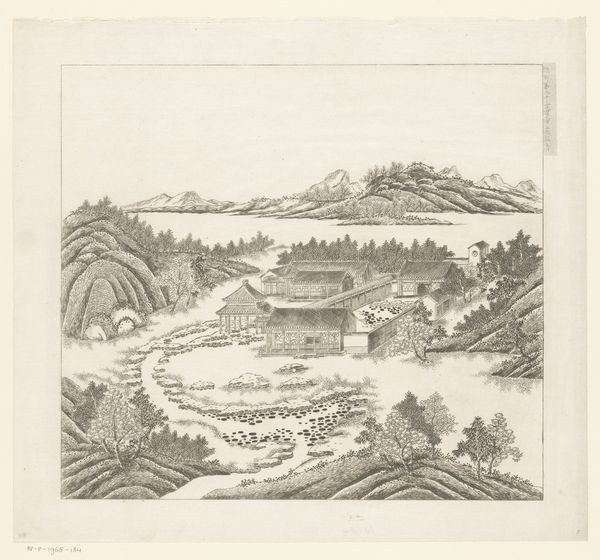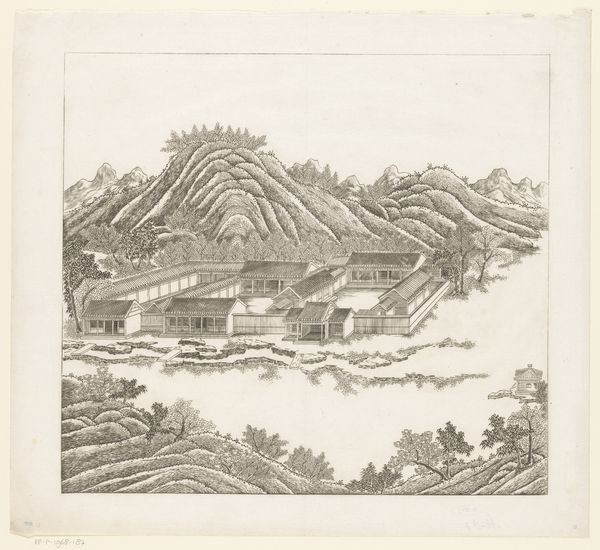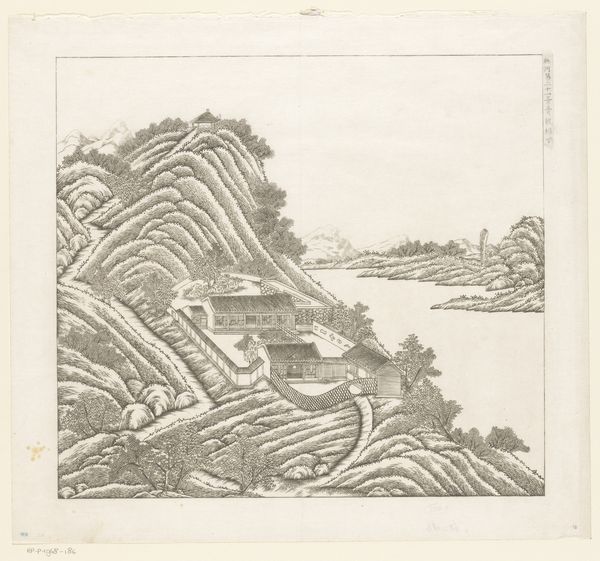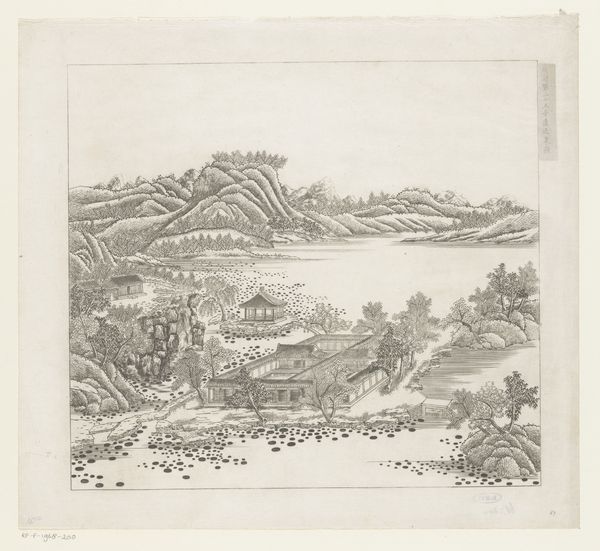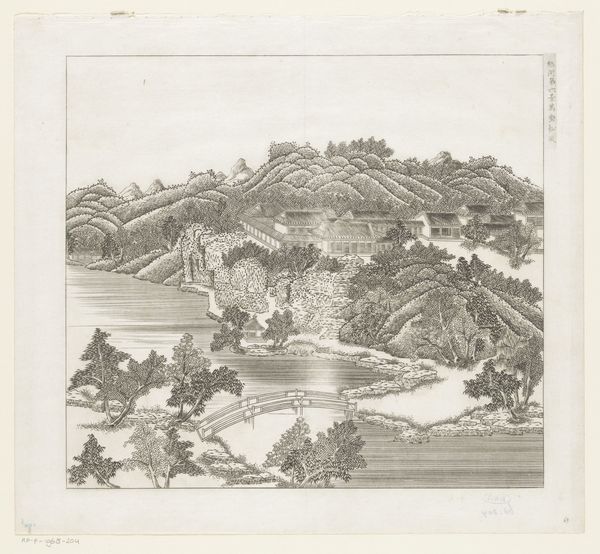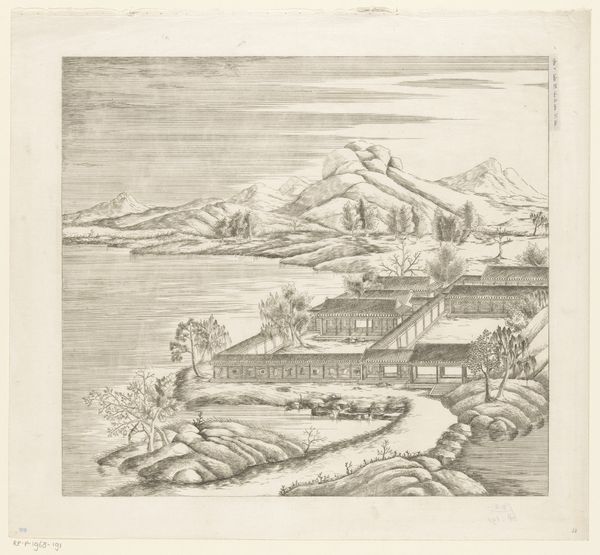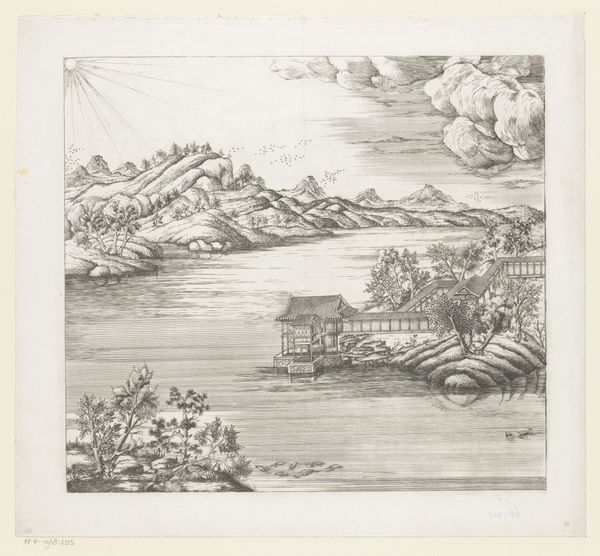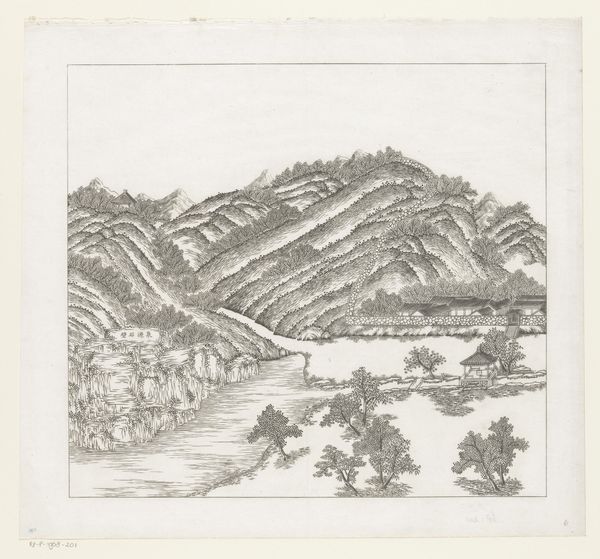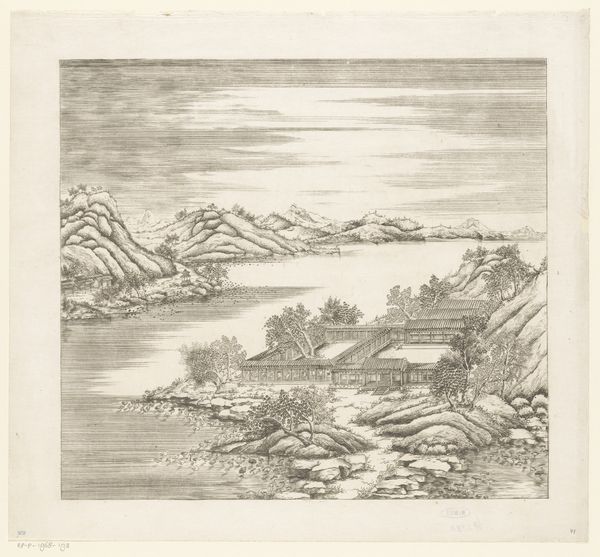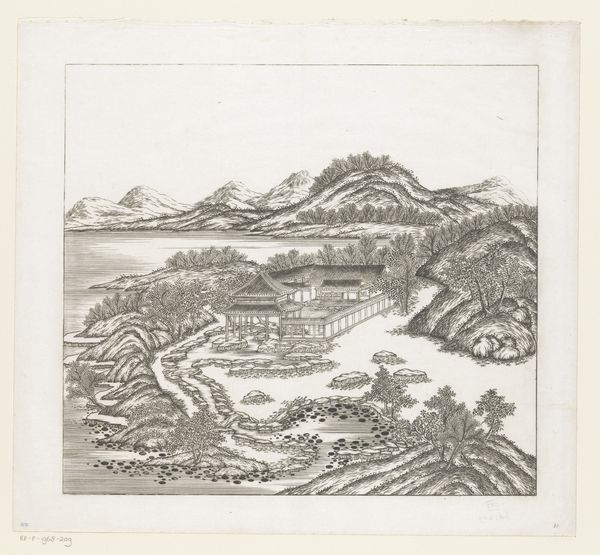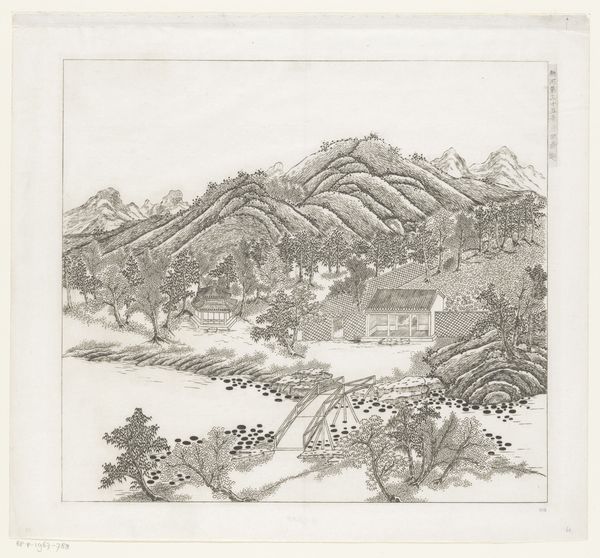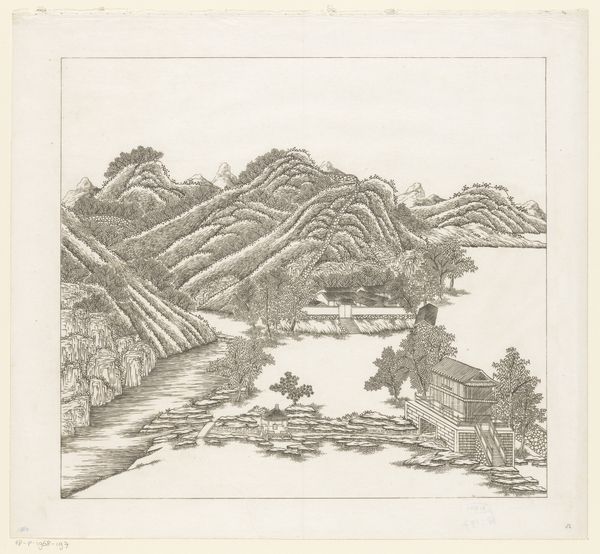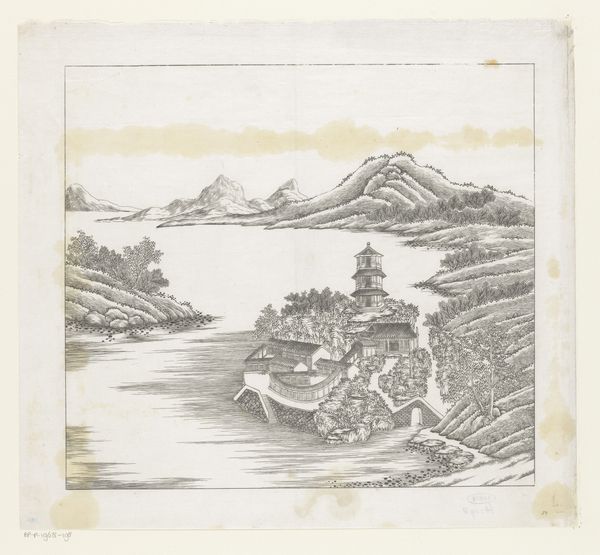
Gezicht op een deel van het keizerlijk zomerpaleis in Chengde (Jehol) te China 1712 - 1714
0:00
0:00
matteoripa
Rijksmuseum
drawing, print, paper, ink, engraving
#
drawing
#
light pencil work
# print
#
pen sketch
#
pencil sketch
#
asian-art
#
old engraving style
#
landscape
#
paper
#
personal sketchbook
#
ink
#
geometric
#
pen-ink sketch
#
orientalism
#
line
#
pen work
#
sketchbook drawing
#
pencil work
#
sketchbook art
#
engraving
Dimensions: height 325 mm, width 356 mm
Copyright: Rijks Museum: Open Domain
Editor: This is Matteo Ripa's "Gezicht op een deel van het keizerlijk zomerpaleis in Chengde (Jehol) te China," made between 1712 and 1714, currently housed at the Rijksmuseum. It's an engraving – all these precise lines creating a scene so distant and, frankly, romanticized. What story do you think this piece is trying to tell? Curator: This engraving offers a fascinating glimpse into the intersection of art, politics, and cultural exchange. Ripa, an Italian missionary and artist in the service of the Kangxi Emperor, created these views of the imperial summer palace. The very act of a European artist depicting the Qing imperial landscape speaks volumes about the power dynamics at play. Editor: Power dynamics? In a landscape? Curator: Absolutely. Think about the purpose this imagery served. It was created, in part, to project an image of the Emperor’s power and the sophistication of his court, not just internally but also externally. How do you see the style contributing to that projection? Editor: I suppose the detailed, almost scientific approach makes it feel authoritative… official, even? It’s a clear and legible image of power. But it also feels like Ripa is adding his own… European sensibility? Curator: Precisely. Ripa’s artistic background inevitably shapes his depiction. His style blends European printmaking traditions with the visual language of the Qing court, creating a hybrid representation. Think of what the consumption of art such as this did back in Europe in the 1700’s. Editor: I hadn't really thought of it that way. So, this image isn’t just a pretty picture; it's a political document of sorts, reflecting both the Emperor’s ambitions and Ripa’s unique position. Curator: Exactly. It reveals much about the ways power is visualized, disseminated, and interpreted across cultures. The layers of representation make you wonder how many hands had input. Editor: I am definitely leaving with a new appreciation for landscapes!
Comments
No comments
Be the first to comment and join the conversation on the ultimate creative platform.
